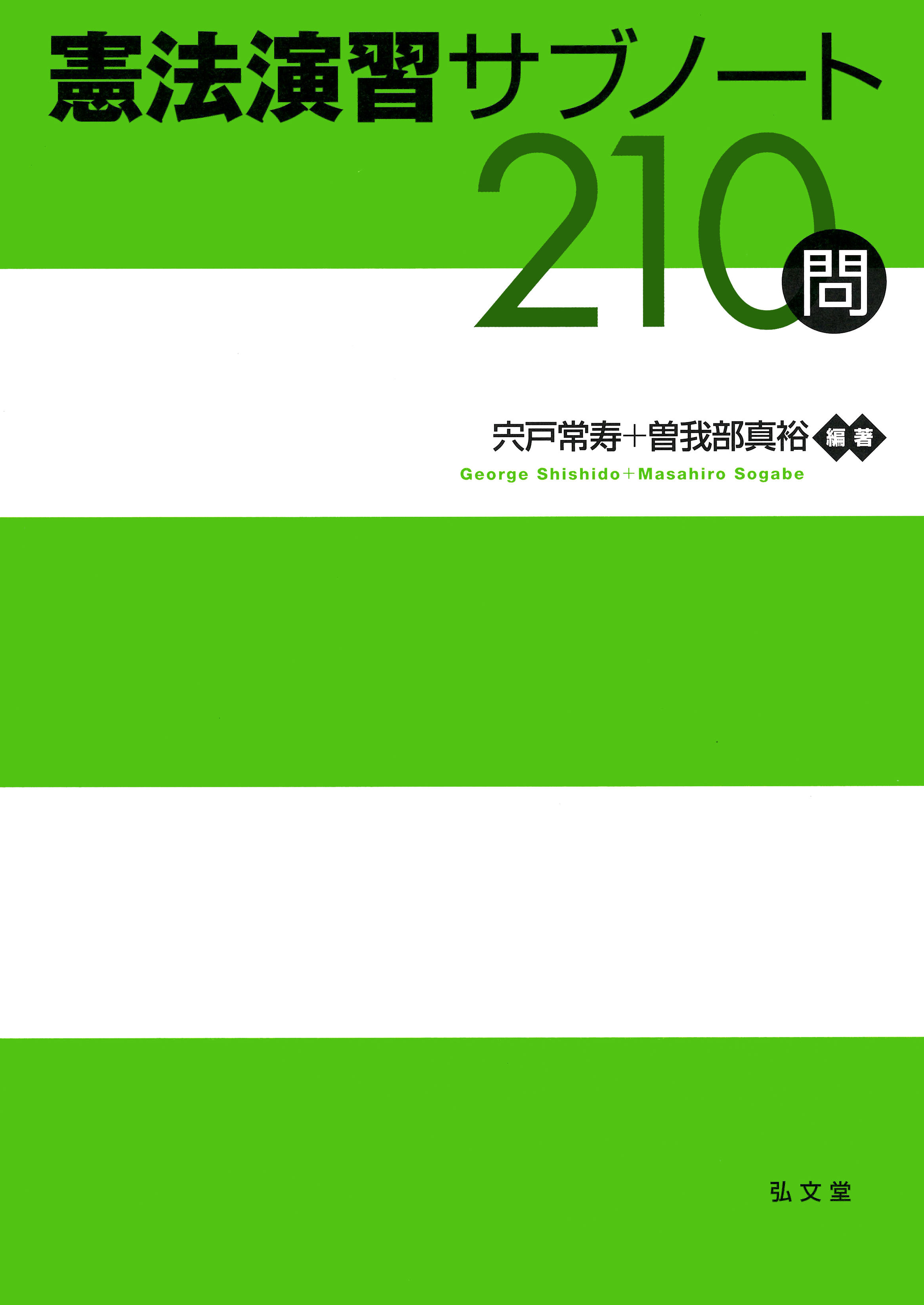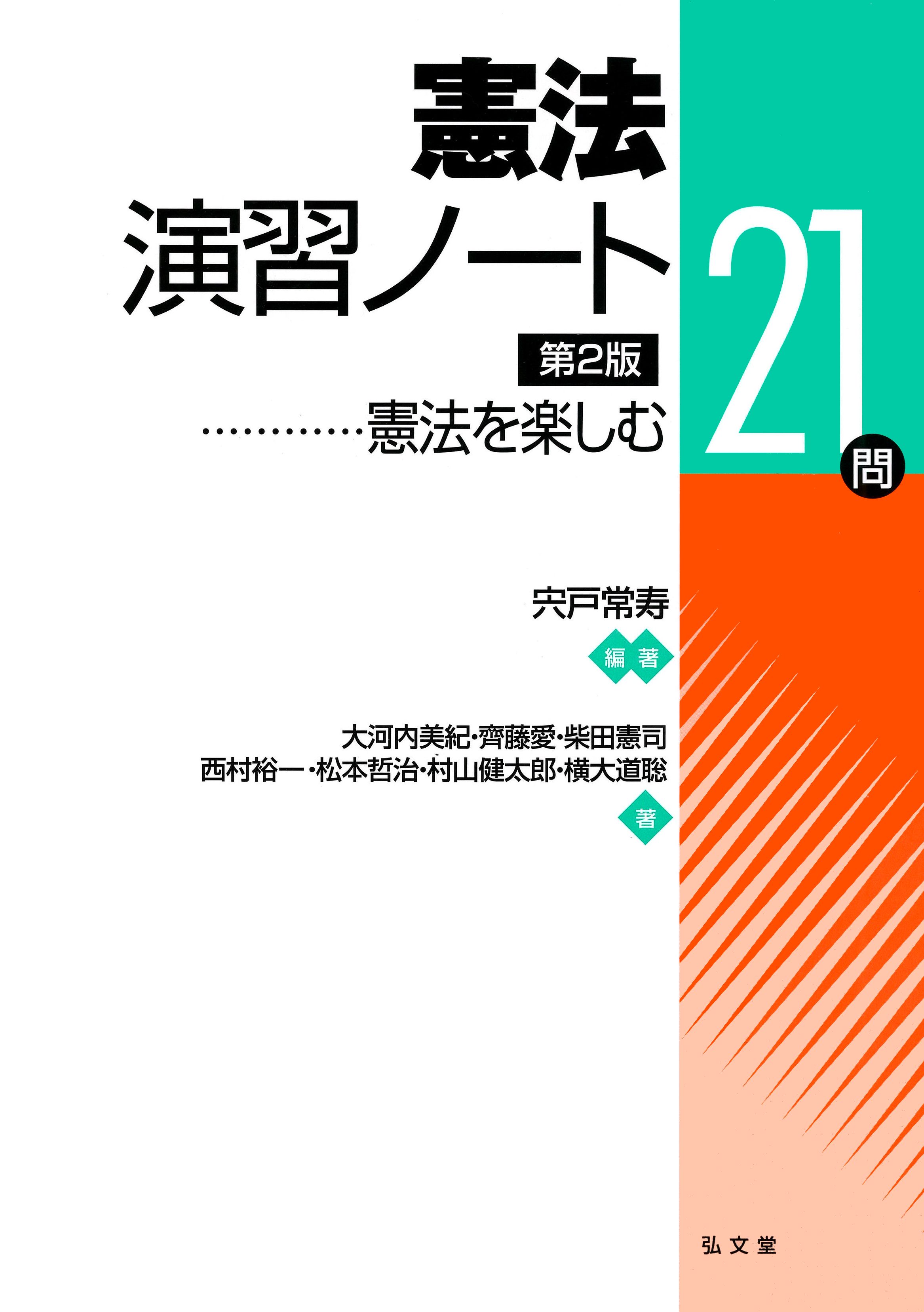
Title
Exercise sub-note 210-question series Kenpo enshu sub-note 210-mon (Constitutional law exercise sub-note, 210 questions)
Size
444 pages, A5 format, softcover
Language
Japanese
Released
July, 2021
ISBN
978-4-335-35861-6
Published by
KOUBUNDOU Publishers Inc.
Book Info
See Book Availability at Library
Japanese Page
This work is an exercise book on constitutional law, published as part of Enshu sabunoto 210-mon shirizu (Exercise sub-note 210-question series) released by Koubundou, a major legal publishing house. There are many exercise books on constitutional law. However, this particular work, which targets beginners and covers the entire constitution, is unique in that it has dedicated a page each to a question on a brief legal case and the comment on it.
The editors set the general outline, selected contributors and asked them to draft specific contents and questions, and then appropriately compiled their work. The contributors provided comments based on legal precedents and standard academic theories in a way that would be easy to understand for beginners.
This book stands in contrast to Kenpo enshu noto (Constitutional law exercise note), also from the same publisher. Kenpo enshu noto focuses on detailed cases and analysis from various perspectives, and even provides sample answers. However, the latest work features a simpler presentation of the knowledge that we (mid-career and fledging constitutional scholars) consider basic as teachers in the faculty of law or law school at universities. The book provides an overview of the content that undergraduate students or first-year law school students should learn.
I myself contributed four articles on the guarantee and limits of property rights and one on the so-called “political question doctrine.” This doctrine holds that courts should refuse to hear highly politicized cases even if a judicial review is possible—invoked by the Supreme Court in the past, it is so well known that it appears in high school civics textbooks. I, as a constitutional scholar, holds a minority view, which rejects the doctrine, but nonetheless commented on judicial precedents and standard theories by pinpointing the issues objectively. Regarding property rights, I explicated the complex language of Article 29 of the Constitution of Japan, in addition to discussing major Supreme Court cases that every law student should master by simplifying various issues raised during trials and presenting them as questions. Forty-four writers contributed to this book, but they all followed our editorial style and enabled us to produce an exercise book consistent in content and format.
I “co-edited” this book with Professor Masahiro Sogabe (Kyoto University), a preeminent scholar in this field. Truth be told, during the later stages of the editorial process, I completely relied on him, who carefully checked the huge number of draft questions and submissions.
I would therefore like to express his deep gratitude to Professor Sogabe.
(Written by SHISHIDO George, Professor, Graduate Schools for Law and Politics / 2021)



 Find a book
Find a book


